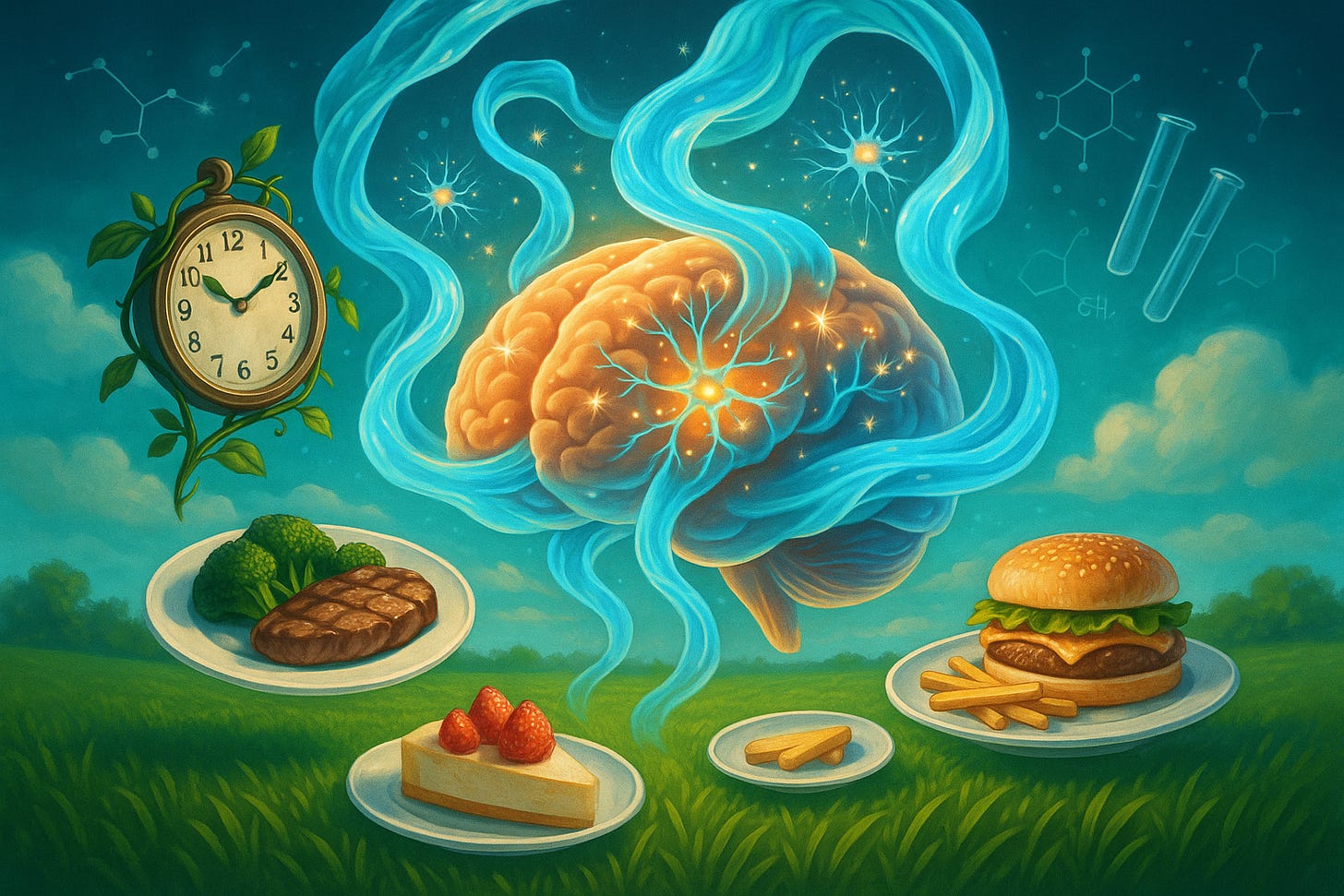Unlock Your Brain's Hidden Shield: The Ketone Booster That Fights Stress Without Fasting
Revolutionizing Neuroprotection: How 1,3-Butanediol Mimics Calorie Restriction's Perks for a Sharper, Healthier Mind.
Ever feel like your brain could use a tune-up amid daily stresses, but fasting sounds like a hassle? This new research dives into 1,3-butanediol (BD), a supplement that spikes ketone levels without cutting carbs or calories, offering a fresh angle on protecting brain health. By examining its effects on healthy rats, the study reveals immediate relevance for anyone chasing longevity—showing BD could safeguard your mind's resilience against aging's toll.
Building on that promise, let's break down the study's core discovery in simple terms.
The Core Discovery
This research tackled a key question: Can a ketone-boosting supplement like BD protect the brain in everyday healthy conditions, without the rigors of a ketogenic diet? In healthy adult rats, a two-week BD regimen sparked ketosis (elevating beta-hydroxybutyrate levels), leading to reduced inflammation, oxidative damage, and cellular stress in the hippocampus—a brain region vital for memory and learning.
Compared to calorie-restricted rats (who ate the same energy amount but without BD), the BD group showed unique wins, like lower glial activation and enhanced antioxidant defenses. Think of it like giving your brain a built-in shield, where BD doesn't just mimic fasting's effects—it amps them up.
This naturally leads us to explore why these findings aren't just lab trivia, but something that could reshape your daily habits.
Why This Matters to You
These insights hit home for real-world brain health, especially if you're navigating midlife stresses or aiming to extend your cognitive prime. BD dialed down pro-inflammatory signals and oxidative stress, while boosting BDNF—a protein that supports neuron growth and synaptic strength. For habits, this suggests ketone supplements could enhance focus and mood without drastic diet overhauls; imagine pairing it with intermittent fasting for amplified effects. In terms of therapies, it points to BD as a tool for longevity seekers, potentially warding off age-related decline in cognition or even conditions like Alzheimer's precursors.
Lifestyle plays a role too—active folks might see bigger benefits from BD's energy-shifting magic, while gender differences (noted in rat studies) hint women could gain more from its stress-busting edge during hormonal shifts. Overall, it's a nudge toward personalized tweaks for a longer healthspan, blending science with actionable tweaks like moderate exercise to mimic the rats' neuroprotective setup.
This discovery opens up exciting possibilities for future explorations and everyday applications.
Looking Ahead
This study paves the way for human trials testing BD's role in preventive brain care—think supplements tailored for busy professionals or aging athletes. Innovations could include BD-infused drinks or combo therapies with existing longevity hacks like exercise. On the research front, lingering questions remain: How do long-term effects play out in diverse groups, like older adults or those with varying diets?
Start monitoring your own ketone levels with affordable home kits, and watch for emerging BD products. It's like planting seeds for a brain-health revolution—who knows, this could evolve into routine "ketone shots" for mental clarity.
Flowing from these horizons, it's crucial to ground our enthusiasm in the realities of risks and study limits. While BD showed no adverse effects in these healthy rats, potential downsides include mild digestive tweaks from high doses, as seen in prior animal work—always consult a doc before experimenting, especially if you're pregnant or managing liver conditions. Ethically, scaling this to humans raises questions about equitable access to such enhancements, avoiding hype that overshadows balanced nutrition.
Caveats abound: The study focused on young male rats, so effects might vary by age, gender, or lifestyle—older females, for instance, could respond differently due to hormonal interplay. Plus, while BD outperformed simple calorie cuts, it's no magic bullet; results stem from controlled settings, underscoring the need for broader trials to confirm safety in people.
What This Could Mean for You
Ready to apply this science? If you're over 40 and eyeing cognitive edge, consider low-dose BD supplements (start at 10% in water, like the rats) under medical guidance to induce mild ketosis—aim for 2-4 weeks, tracking mood and focus via apps. Pair it with a balanced diet rich in veggies to enhance its anti-stress effects, and if you're active, time it post-workout for recovery boosts.
For women in perimenopause, it might offer extra neuroprotection against hormonal fog, while sedentary folks could combine it with walking to mimic the study's stress reduction. Remember, evidence is rat-based, so monitor blood ketones and consult pros—subtle humor aside, don't chase ketosis so hard you forget to enjoy your meals!
Explore the Full Study
"1,3-butanediol administration as an alternative strategy to calorie restriction for neuroprotection – Insights into modulation of stress response in hippocampus of healthy rats" by Luisa Cigliano et al., published in Biomedicine & Pharmacotherapy (2025). Direct link: https://doi.org/10.1016/j.biopha.2024.117774.


